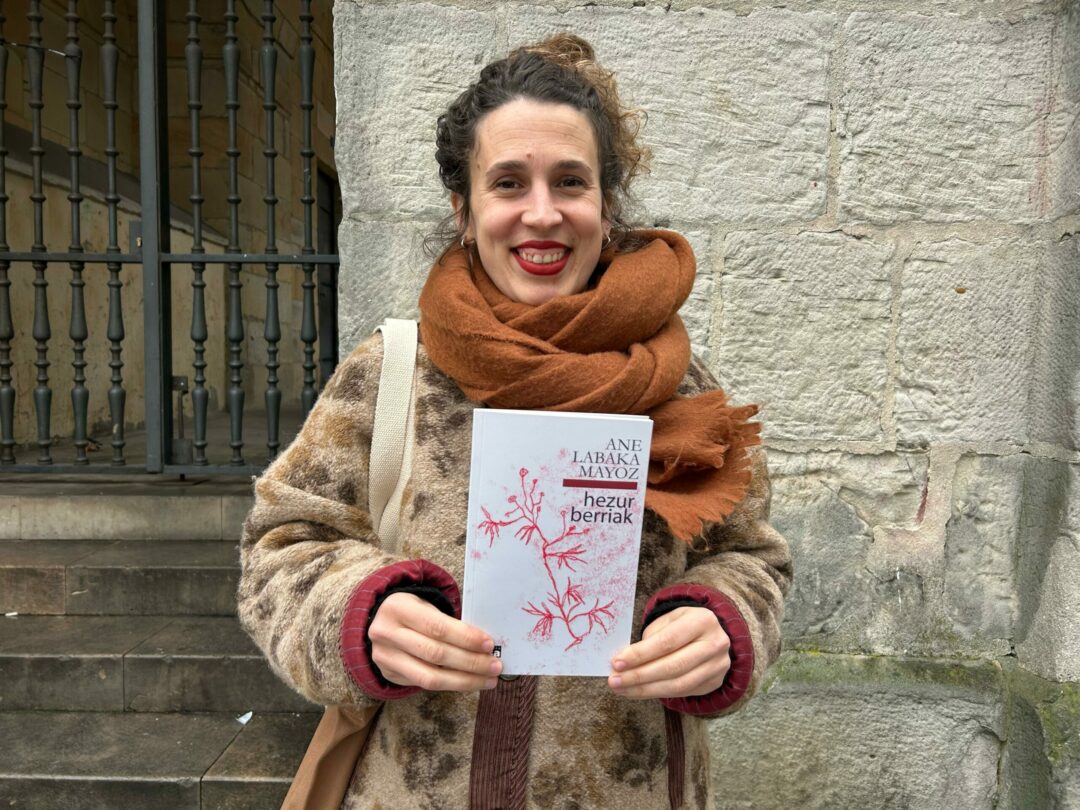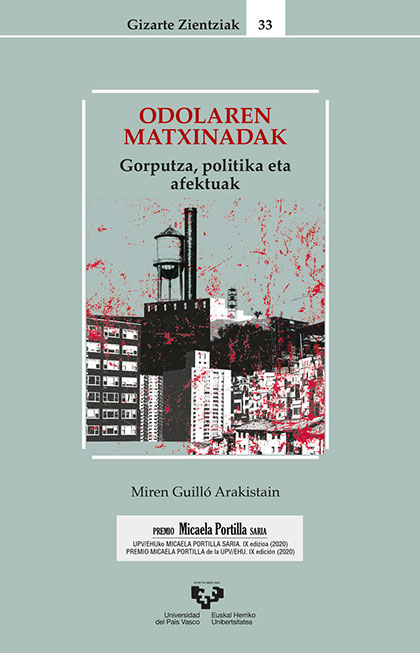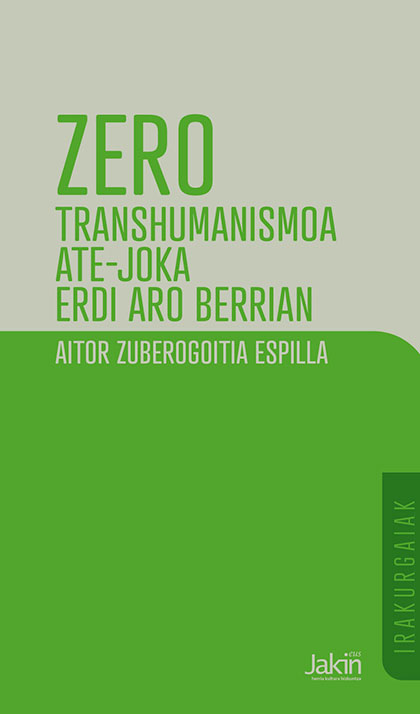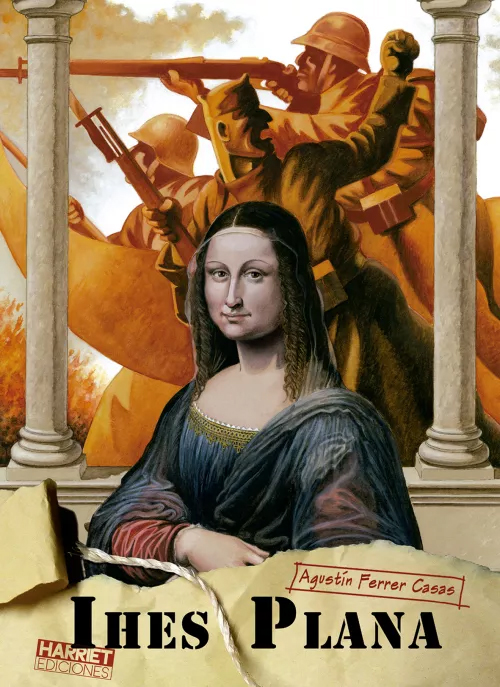Tanger, sanctuary of non-interference
- In the 1950s and 1960s, numerous creators were established in Tangier, through a mystified image of cinema and literature around the city. The dark and free atmosphere of the city’s streets became a sweet attraction for artists who wanted to flee the Puritan atmosphere of their countries, including the American writers of the marginal literary movement Beat Generation and, later, the hippies they were looking towards the East. In the words of the writer William Burroughs beat, “Tanger is one of the few places left in the world, where you can do whatever you want, as you don’t steal and use violence and don’t openly accept antisocial attitude. It is a sanctuary of non-interference.”

To understand Tangier’s lustful charm of writers and intellectuals, it is essential to look at the historical background of the city. It highlights its geographical location in a strategic location opposite the Strait of Gibraltar. For this reason, it has received for centuries the persecution and shadow of foreign peoples.
The modernization of Morocco came with Muhammad III.aren (1757-1790). Sultana undertook numerous reforms, but also began a war with Spain in 1774, with the aim of recovering the cities and spaces that Carlos III.ak had in Morocco. With this declaration of war, Muhammad III.ak brought together all diplomatic representatives in Tangier to turn them into diplomatic cities. Along with this, the port of Tangier was an important entry for large foreign film boats. In this way, Tangier was largely a mythic and peculiar Taner for its outer shadow.
That is when the international journey of the city begins, which consolidates in 1906, coinciding with the Algeciras Conference. For decades, Spain made great efforts to introduce Tangier into its protectorate, but this conference led it to obtain the International Statute, from 1923, a city that was a field of international control, that is, its government and administration was in the hands of an international committee made up of several countries. The Statute was an indispensable instrument for turning Tanger into a social, musical, literary and cultural paradise. This Tangier International Space ended in 1960, when the city gained its complete independence, when Tangier had occupied more foreign creators than ever before, that is, at the time of the counterculture.
Husband
The time of interwar was very fruitful in Tangier. Paul Bowles came to town in 1931 with his piano. Bowles was a musician and an educated composer, but he started writing in Tangier. Two years later, he wrote the successful novel The Sheltering Sky. The American settled definitively in Tangier in 1947 with his wife Jane. Her wife, for her part, was a writer when she came to Tangier.
This Tangier International Space ended in 1960, when the city gained its complete independence, when Tangier had occupied more foreign creators than ever before, that is, at the time of the counterculture.
Paul Bowles was a disciplined creator of orderly life, but in North Africa he became an uncertain, mysterious, gray man. I would spend my evenings at home, alone, quietly, smoking the kifa. A cult and complex intellectual, an ethereal and mysterious character who built around him to complete the myth. Thus, Tangier's counterculture focused on Bowles and, with the charm of Bowles' images, counterculture representatives such as Truman Capote, Tenesse Williams, Patricia Highsmith, Jack Kerouac, Allen Gisberg or Rolling Stbrian came along. The Tangerian writers also approached Bowles, including the famous Muhamed Xukri. In fact, Xukri wrote a book on Bowles, Paul Bowles wa’ Uzlatulanya (prisoner of Paul Bowles Tanger, 1966), in which he represented his admiration and hatred of the American. Bowles transcribed Xukri's first books, and they shared the authorship of those books, apparently, Bowles stole the soss derived from copyright to tanker. In addition, he transformed the text by introducing, among other things, the achaques of a Western writer.
Wife
Thus, native and foreign writers constructed the corrupt and transgressive character of the intermarine city. Among these creators is the contribution of Jane Bowles, buried by the weight of her husband. Unlike the male writer, Jane was integrated into the daily life of the city and had many relationships with the locals. Today her literary heritage has been recognized, but at that time she was overburdened by her husband. Unlike Bowles, Jane wrote her most important works before reaching Tangier: The novel Two Serious Ladies (Bi emakume seria, 1946) and the storybook Plain Pleasures (1966), which also published a play. She was a woman with a peculiar personality, a vagabond, unbalanced and funny, an unsafe but brilliant writer. He was a fascinating writer, admitted to a mental health center in Málaga (Andalusia) due to a traditional block of writing, who spent his last days alone, without reading ability. For some of the writers they met in Tangier, Jane was an innovative fresh air.
II. The Beat Generation was a literary group that rose up against the stiff and fearful American society after the World War. Tanger was a favorite place for team members, especially because of its lack of sense, ease of access to drugs and sexual anonymity.
Invisible man
II. The Beat Generation was a literary group that rose up against the stiff and fearful American society after the World War. Tanger was a favorite place for team members, especially because of its lack of sense, ease of access to drugs and sexual anonymity. The main representative of this plural generation, at least in terms of age, was William Burroughs, who spent long stays in Tangier between 1953 and 1961. It was the first beat that came to Tangier. There he wrote his most outstanding work, Naked Lunch (Naked Lunch, 1959), which has become a classic of contemporary literature. In this book he introduced the concept he created to call Tanger: Interzone or Interzone. Burroughs stayed at the Muniria hotel. When the writers Allen Ginsberg and Jack Kerouac entered the hotel room, they designated Casa Delirium: Burroughs was leaving the room just to buy toxic substances. The work of Ginsberg and Kerouac was fundamental to sewing Naked Lunch, as the state of Burroughs and its hole was unfortunate. As a result, more time was left and the pages disseminated between four walls were sorted and typed: “I lived in the Moorish district of Tangier. For a year, I didn't bathe, I didn't change clothes, in my fibrous flesh, in end-dependence gray wood, I just took the clothes off to put a needle every hour. Empty boxes of ampoules and trash could reach the ceiling.” In the face of this personal catastrophe, Burroughs walked the streets with the traces of a ghost. That is why the people of Tangier named him an “invisible man.”
Tanger had little influence on the work of Beat generation. The city was considered an icon of freedom, but they passed through Tangier as literary tourists, as they did before in Mexico. According to the Mexican biographer Jorge García-Robles, de Burroughs, “[Burroughs] did not show great interest nor for better understanding of the neighborhoods in which he lived, despite having a significant cultural and social life in the late 1940s and early 1950s”.
In order to get to know the true Tangier of the time, we have to go to the works of Mohamed Xukri (...) moving away from the urban myth that literary tourists admired, Xukri gathered in his work Tangier of flesh and bone, a reflection of his life.
Street child
To meet the true seasonal Tangier you have to go to the works of Mohamed Xukri. The tanguero writer lived a hard childhood: born in a very poor family, his father beat him. This wild childhood made him leave home. He spent days in bars and brothels and overnight in cemeteries to prevent adults from being raped. Thus, he found support in the books, learned to write and read. In his literature, social involvement stands out: “I am in favour of defending marginalized, forgotten and crushed classes,” he said. He says that “anyone can spend a few weeks here and write a booklet.” Thus, moving away from the urban myth that literary tourists admired, Xukri collected in his work Tanger of flesh and bone, a reflection of his life. The most notable piece is Ogi hutsa, translated into Basque by the editorial Igela in 2010, translated into at least 50 languages. “I feel like a writer who has been reprimanded for the fame of a single book,” he said in the wake of that work. Transcribed by Bowles in 1972, it was published in Arabic ten years later: the authorities censored the real and raw, immoral and pornographic story narrated in the first person. Mikel Garmendia wrote on the web eizie.org when the Basque version was published: “(…) Hunger, yes, that is the moral landscape of this magnificent autobiographical narrative (…) Tanger, Oran, Larache … areas of misery where pain, injustice and compassion are discovered with growth”. Far from the sight of Western enchanted writers, sweetened by Kifa, far away.
Under the asphalt, the flower
Text: Monica Rodriguez
Illustrations: Rocío Araya translation
of: Itziar Ulcerati
A fin de cuentos, 2025
Ereserkiek, kanta-modalitate zehatz, eder eta arriskutsu horiek, komunitate bati zuzentzea izan ohi dute helburu. “Ene aberri eta sasoiko lagunok”, hasten da Sarrionandiaren poema ezaguna. Ereserki bat da, jakina: horra nori zuzentzen zaion tonu solemnean, handitxo... [+]
Perhaps we could say that this text is the result of an appraisal meeting. However, valuation meetings often leave a dry and bittersweet taste in the mouth. It's a sunny Tuesday afternoon. 16:53. We've connected to the valuation meeting, and we've decided to put a lemon candy in... [+]
Odolaren matxinadak. Gorputza, politika eta afektuak
Miren Guilló
EHU, 2024
Miren Guilló antropologoaren saiakera berria argitaratu du EHUk. Odolaren matxinada da izenburu... [+]
Astelehen honetan hasita, astebetez, Jon Miranderen obra izango dute aztergai: besteren artean, Mirande nor zen argitzeaz eta errepasatzeaz gain, bere figurarekin zer egin hausnartuko dute, polemikoak baitira bere hainbat adierazpen eta testu.
Zero. Transhumanismoa ate-joka erdi aro berrian
Aitor Zuberogoitia
Jakin, 2024
-----------------------------------------------------------
Hasieran saiakera filosofiko-soziologikoa espero nuen, baina ez da hori liburu honetan aurkitu dudan bakarra. Izan ere, biografia... [+]
Adolfo Bioy Casares (1914-1999) idazle argentinarrak 1940an idatzitako La invención de Morel (Morelen asmakizuna) eleberria mugarritzat jotzen da gaztelaniaz idatzitako literatura fantastikoaren esparruan. Nobela motza bezain sakona da, aparta bere bakantasunean, batez... [+]
Anton Txekhov, Raymond Carver eta Alice Munroren ipuingintzari buruzko mahai-ingurua egin dute Iker Sancho, Harkaitz Cano eta Isabel Etxeberria idazle eta itzultzaileek, Ignacio Aldecoa zenaren ipuin literarioaren jaialdian, Gasteizen. Beñat Sarasolak gidatuta, autore... [+]
Ihes plana
Agustín Ferrer Casas
Itzulpena: Miel A. Elustondo
Harriet, 2024
---------------------------------------------------------
1936ko azaroaren 16an Kondor legioko hegazkinek Madrilgo zenbait museori egin zieten eraso. Eta horixe bera da liburu honetara... [+]

























